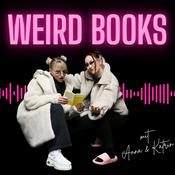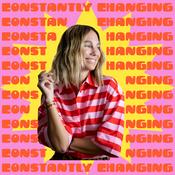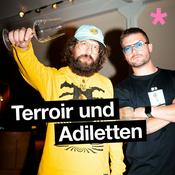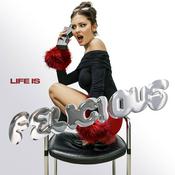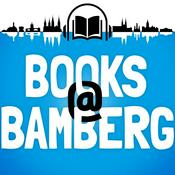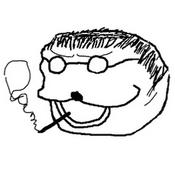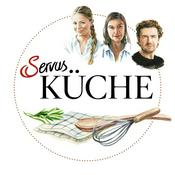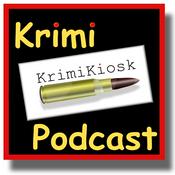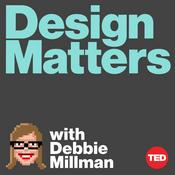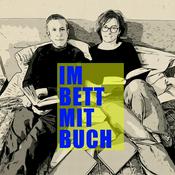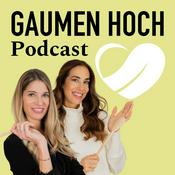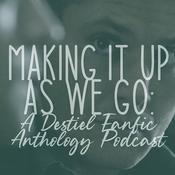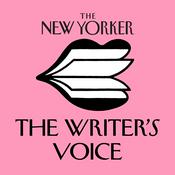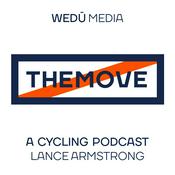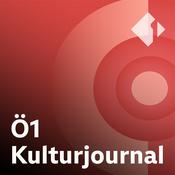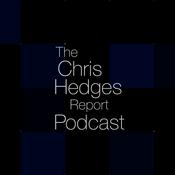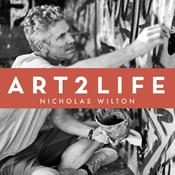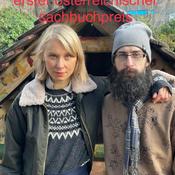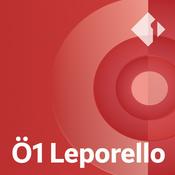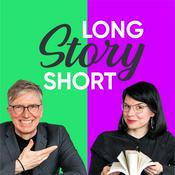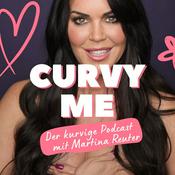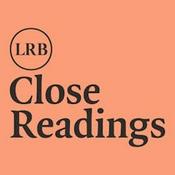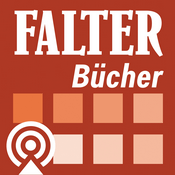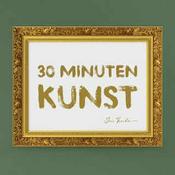214 Episoden
- “People today are so used to Basquiat's prices being extraordinarily high and rising that it's almost hard for people to understand that wasn't always the case. In the year he died, 1988, a terrific painting by Basquiat might have sold for $30,000. Relative to his other artistic peers, like a great Julian Schnabel painting that cost $800,000. After Basquiat died, some speculative capital entered his market, and his prices did pop, but in the early 1990s, his prices fell apart, and for much of the first half of the 1990s, his work was selling for 80% off what it had been selling before. Auction houses didn't want to include him in their auctions. There was a really good chance he was going to be remembered, but certainly not become a great star. Three key figures believed in him and proceeded to buy almost every available Basquiat in the first half of the 1990s. They were also just passionate believers in his work. But for those three people, it would have taken much longer for Basquiat to achieve acclaim, if ever.”
Today, we’re joined by someone uniquely positioned to unpack the art world’s inner workings and to help us understand one of its most mythic figures — Jean-Michel Basquiat. Doug Woodham is the author of the new biography, Jean-Michel Basquiat: The Making of an Icon, the first major life study of Basquiat in over twenty-five years. Drawing on more than a hundred interviews — from family and friends to collectors and curators — Doug traces the rise, fall, and resurrection of an artist who redefined what it means to be a cultural icon. Before turning to writing, Doug served as President of the Americas for Christie’s, one of the world’s leading auction houses. That role gave him an insider’s perspective on how value is created — and mythologized — in the modern art market. In this conversation, we’ll explore not just the man behind the legend, but the powerful machinery that turned Jean-Michel Basquiat into one of the most recognized and commercially successful artists in the world.
Episode Website
www.creativeprocess.info/pod
Instagram:@creativeprocesspodcast
Images courtesy of Doug Woodham and Thames & Hudson. For image credits, see Episode Website. JEAN-MICHEL BASQUIAT: The Making of an Icon with DOUG WOODHAM, Fmr. President of Christie's Americas
27.11.2025 | 1 Std. 34 Min.“All of the great artists are there for a reason: because they rebelled in some way. They created a visual vocabulary that felt fresh and new, which excited people. So, the great artists are not built on sort of anthills of sand. They're built on things of substance and of meaning. Though this is not a sufficient condition to become an icon, it's a necessary but not sufficient condition. I think you have to have an interesting and vivid personality or personal narrative that makes you interesting for people to talk about and want to learn about. I think you also have to have a support network of galleries, curators, and collectors who are excited about your work and want to push it forward, not wanting it to be forgotten. Basquiat's visual vocabulary is distinctive and stands out relative to what was being done in the 1980s. That's the sort of strong hill on which his reputation is built. Basquiat benefited from being the first black artist of note who got pushed forward. As in many things, the first benefits.”
Today, we’re joined by someone uniquely positioned to unpack the art world’s inner workings and to help us understand one of its most mythic figures — Jean-Michel Basquiat. Doug Woodham is the author of the new biography, Jean-Michel Basquiat: The Making of an Icon, the first major life study of Basquiat in over twenty-five years. Drawing on more than a hundred interviews — from family and friends to collectors and curators — Doug traces the rise, fall, and resurrection of an artist who redefined what it means to be a cultural icon. Before turning to writing, Doug served as President of the Americas for Christie’s, one of the world’s leading auction houses. That role gave him an insider’s perspective on how value is created — and mythologized — in the modern art market. In this conversation, we’ll explore not just the man behind the legend, but the powerful machinery that turned Jean-Michel Basquiat into one of the most recognized and commercially successful artists in the world.
Episode Website
www.creativeprocess.info/pod
Instagram:@creativeprocesspodcast"Everything is Art. Everything is Politics." AI WEIWEI'S TURANDOT Dir. MAXIM DEREVIANKO - Highlights
22.10.2025“So when we decided to do a documentary to follow Ai Weiwei, we knew, of course, it wouldn't be just a simple opera, and we knew he would bring his own very special and original vision. Because, of course, he is not an opera director. From his point of view, it's a challenge, but from another perspective, it’s probably an enrichment for the opera audience because he doesn't follow the rules of opera. And, of course, once you decide to do a documentary about Ai Weiwei, it's in his DNA to be political. Once I started to follow him, the political issues and topics came into the documentary by themselves.”
The renowned artist and activist Ai Weiwei has used sculpture, photography, documentaries, and large-scale installations to challenge authoritarian power for decades. But his project at the Rome Opera House, directing Puccini’s final opera, Turandot, may be his most powerful fusion of art and politics yet. Puccini’s original is a fairy tale set in ancient China about a princess whose riddle game costs failed suitors their lives. But Ai Weiwei transformed this story into a stark reflection of the present, weaving in footage of refugee crises, COVID hospitals, and the Ukraine war—a production that became an urgent act of resistance for its Ukrainian conductor and cast. The opera and documentary are a living document of our turbulent times, embodying Ai Weiwei’s belief that 'Everything is Art. Everything is Politics.'
The new documentary, Ai Weiwei's Turandot, goes behind the curtain to capture the artistic struggle and emotional weight of making this work—a process that began with one vision and was fundamentally changed by a global pandemic and a major war.
My guest is the documentary’s director, Maxim Derevianko. He grew up in a family with deep ties to the Rome Opera House, and he offers a deeply personal, intimate look at how in Ai Weiwei’s words, “art competes with reality, but art will have the last word.”
Episode Website
www.creativeprocess.info/pod
Instagram:@creativeprocesspodcast- “Everything is Art. Everything is Politics.
I think art competes with reality. And art will give you the last words.” –Ai Weiwei
The renowned artist and activist Ai Weiwei has used sculpture, photography, documentaries, and large-scale installations to challenge authoritarian power for decades. But his project at the Rome Opera House, directing Puccini’s final opera, Turandot, may be his most powerful fusion of art and politics yet. Puccini’s original is a fairy tale set in ancient China about a princess whose riddle game costs failed suitors their lives. But Ai Weiwei transformed this story into a stark reflection of the present, weaving in footage of refugee crises, COVID hospitals, and the Ukraine war—a production that became an urgent act of resistance for its Ukrainian conductor and cast. The opera and documentary are a living document of our turbulent times, embodying Ai Weiwei’s belief that 'Everything is Art. Everything is Politics.'
The new documentary, Ai Weiwei's Turandot, goes behind the curtain to capture the artistic struggle and emotional weight of making this work—a process that began with one vision and was fundamentally changed by a global pandemic and a major war.
My guest is the documentary’s director, Maxim Derevianko. He grew up in a family with deep ties to the Rome Opera House, and he offers a deeply personal, intimate look at how in Ai Weiwei’s words, “art competes with reality, but art will have the last word.”
Episode Website
www.creativeprocess.info/pod
Instagram:@creativeprocesspodcast - “At Guggenheim Abu Dhabi, I work with a very international team—people from all over the world, around 50 nationalities in this museum. I’ve never worked in such an environment, and it’s inspiring. When you talk to someone from a different country, you can’t help but be inspired. The most important thing for me is to feel fulfilled, and I find fulfillment in learning something new and being inspired every day. Of course, it doesn’t have to be the same for everyone. People can find fulfillment in charity or teaching kids. Everyone chooses what makes them feel fulfilled, as long as it’s meaningful.”
Art museums have long been pillars of culture, but they are now at a critical juncture, navigating a new era defined by artificial intelligence, immersive technology, and the shifting habits of a global audience. The challenge is immense: how do you honor artistic tradition while building a museum for the future? On Saadiyat Island, Abu Dhabi is answering this question in a dramatic way, with the Guggenheim Abu Dhabi. Designed by the visionary architect Frank Gehry, this $1 billion project is more than just a new museum; it’s a statement—a new cultural superpower announcing itself on the world stage. It will be the largest contemporary art museum in the world, several times the size of the Guggenheim in New York, and a key part of their constellation of museums that is expected to contribute an estimated $200 million annually to the local economy. In the lead-up to its 2027 opening, the Guggenheim Abu Dhabi is embracing a new vision: moving from an "exhibition economy" to an "experience economy," where art becomes a conversation, a laboratory for ideas at the intersection of creativity and technology. Amr Hussein is the Digital Media Manager for the Guggenheim Abu Dhabi, and with a background in major sports broadcasting—from the FIFA World Cup to the Olympic Games—he’s bringing a unique perspective to digital storytelling in the arts. We talk to him about his journey and how he’s helping shape the digital narrative for this landmark museum.
Episode Website
www.creativeprocess.info/pod
Instagram:@creativeprocesspodcast
Weitere Kunst Podcasts
Trending Kunst Podcasts
Über Art · The Creative Process: Artists, Curators, Museum Directors Talk Art, Life & Creativity
Art episodes of the popular The Creative Process podcast. We speak to artists, curators, museum directors about their work & how they made their creative careers. To listen to arts episodes across a variety of disciplines, follow our main podcast: “The Creative Process · Arts, Culture & Society”. You’ll find us on Apple: tinyurl.com/thecreativepod, Spotify: tinyurl.com/thecreativespotify, or wherever you get your podcasts!
Exploring the fascinating minds of creative people. Conversations with writers, artists & creative thinkers across the Arts & STEM. We discuss their life, work & artistic practice. Winners of Oscar, Emmy, Tony, Pulitzer, leaders & public figures share real experiences & offer valuable insights. Notable guests and participating museums include: Laurent Le Bon (Centre Pompidou, Fmr. Musée Picasso), Dwandalyn Reece (Smithsonian Nat’l Museum of African American History & Culture), Chris Dercon (Grand Palais · Fmr. TATE Modern), Mechtild Rössler (UNESCO World Heritage Centre), Dimitrios Pandermalis (Acropolis Museum), Marilyn Minter, Ian Wardropper (The Frick Collection), Hans-Ulrich Obrist (Serpentine Galleries), Mark Seliger, Paul Chaat Smith (Smithsonian National Museum of the American Indian), Susan Fisher Sterling (National Museum of Women in the Arts, Ioannis Trohopoulos (Stavros Niarchos Foundation Cultural Center), Richard Flood (New Museum), John Marciari (Morgan Library & Museum), Jacques Villeglé, Nicole Fleetwood, Sébastien Gokalp (Musée national de l'histoire de l’immigration, Fondation Louis-Vuitton), Ralph Gibson, Jennifer Flay (FIAC), Bénédicte Alliot (Cité Internationale des Arts), Mojeb Al Zahrani (Institut du Monde Arabe), Valerie Steele (Museum at the Fashion Institute of Technology), Eric Fischl, Alicia Longwell (Parrish Art Museum), George Manginis (Benaki Museum), Elissa Auther (Museum of Arts and Design), Christina Mossaides Strassfield (Guild Hall of East Hampton), among others.
The interviews are hosted by founder and creative educator Mia Funk with the participation of students, universities, and collaborators from around the world. These conversations are also part of our traveling exhibition.
www.creativeprocess.info
For The Creative Process podcasts from Seasons 1 2 3, visit: tinyurl.com/creativepod or creativeprocess.info/interviews-page-1, which has our complete directory of interviews, transcripts, artworks, and details about ways to get involved.
Podcast-WebsiteHöre Art · The Creative Process: Artists, Curators, Museum Directors Talk Art, Life & Creativity, eat.READ.sleep. Bücher für dich und viele andere Podcasts aus aller Welt mit der radio.at-App
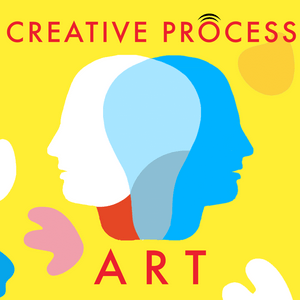
Hol dir die kostenlose radio.at App
- Sender und Podcasts favorisieren
- Streamen via Wifi oder Bluetooth
- Unterstützt Carplay & Android Auto
- viele weitere App Funktionen
Hol dir die kostenlose radio.at App
- Sender und Podcasts favorisieren
- Streamen via Wifi oder Bluetooth
- Unterstützt Carplay & Android Auto
- viele weitere App Funktionen


Art · The Creative Process: Artists, Curators, Museum Directors Talk Art, Life & Creativity
Code scannen,
App laden,
loshören.
App laden,
loshören.



